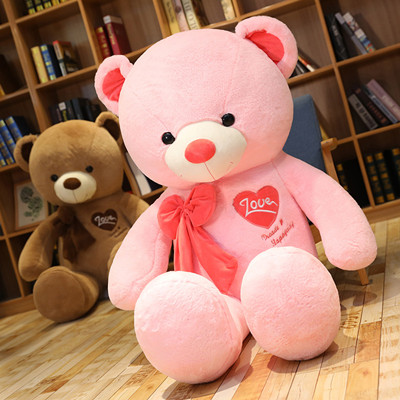Teddy bears, those soft and huggable companions, play a vital role in early childhood development. Beyond being adorable toys, teddy bears offer a range of cognitive, emotional, and social benefits that contribute to a child’s growth and well-being.
1. Emotional Comfort and Attachment: Teddy bears often become a child’s first best friend. These cuddly companions provide a sense of security and comfort, especially in unfamiliar or challenging situations. Children form emotional attachments to their teddy bears, a process known as “transitional object” attachment. This attachment helps children develop emotional regulation skills by providing a consistent source of comfort.
2. Imagination and Creativity: Teddy bears are fantastic catalysts for imaginative play. Children often create elaborate scenarios and stories involving their teddy bears, which helps them develop their creativity and cognitive skills. Through role-playing and storytelling, children enhance their language development, problem-solving abilities, and social understanding.
3. Social Skills and Empathy: Interacting with teddy bears can help children develop early social skills. Children engage in pretend play, taking on the roles of caregivers, friends, or teachers to their teddy bears. This type of play encourages them to practice empathy, cooperation, and communication skills, all of which are crucial for building healthy relationships later in life.
4. Language Development: Teddy bears can be excellent conversation partners for young children. Talking to their teddy bears helps children develop their language skills by expanding their vocabulary, improving sentence structure, and refining pronunciation. This practice in verbal communication lays a solid foundation for effective communication as they grow.
5. Emotional Expression and Coping: Children often use their teddy bears to express emotions they might find difficult to articulate otherwise. Hugging their bear when they’re sad, talking to their bear about their day, or even telling their bear secrets can help children process their emotions and build emotional resilience.
6. Routine and Responsibility: Incorporating teddy bears into daily routines, like naptime or bedtime, can help children develop a sense of structure and responsibility. Taking care of their teddy bear by tucking it in or ensuring it’s safe becomes a small but meaningful task that teaches children about caregiving and routine.
In conclusion, teddy bears are much more than adorable toys – they’re essential companions in a child’s journey of growth and development. From providing emotional comfort to fostering imagination, empathy, and social skills, teddy bears offer an array of benefits that contribute to the holistic development of young minds. Their enduring appeal as beloved companions stems from their ability to play a significant role in shaping a child’s early years.








